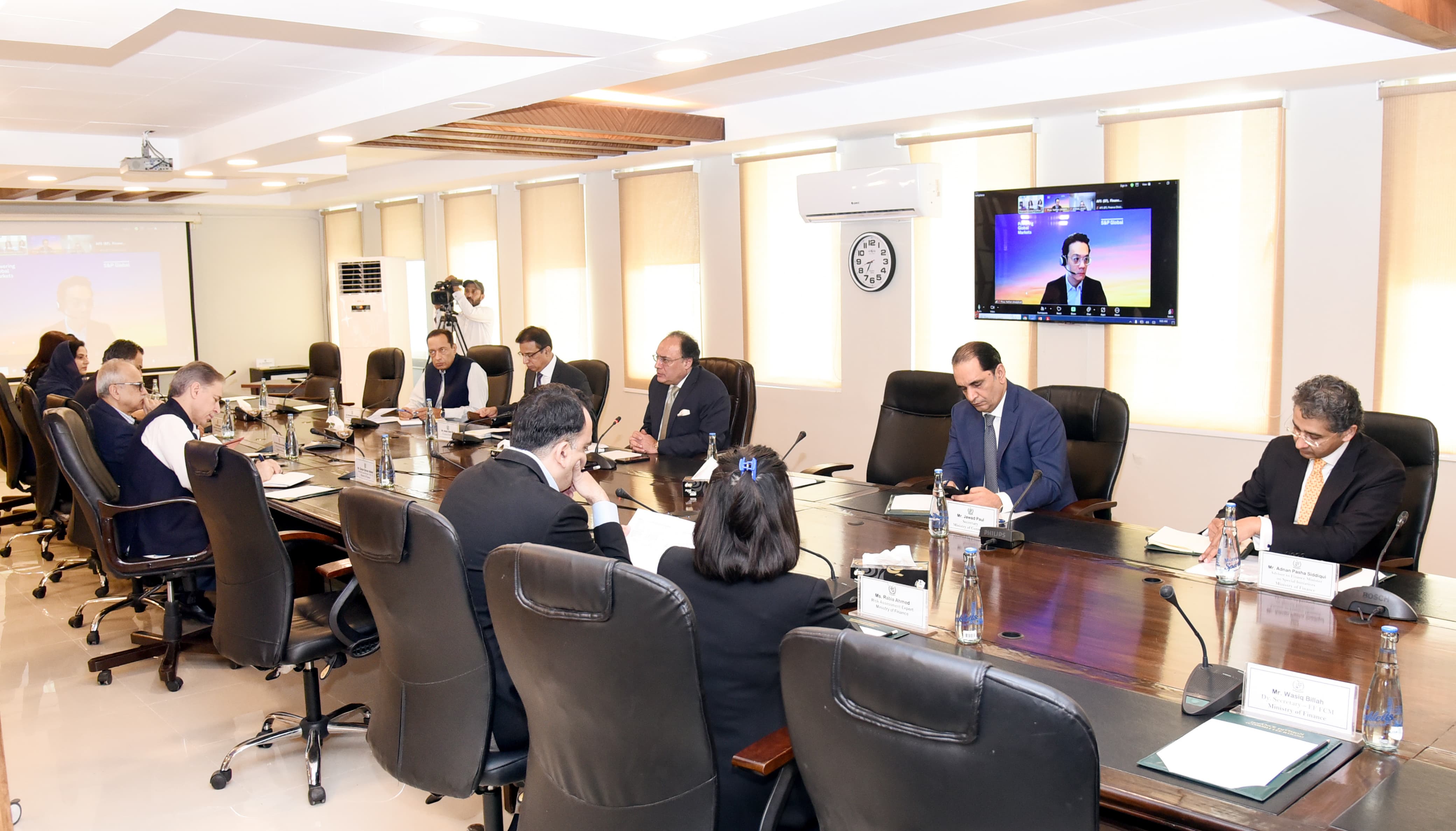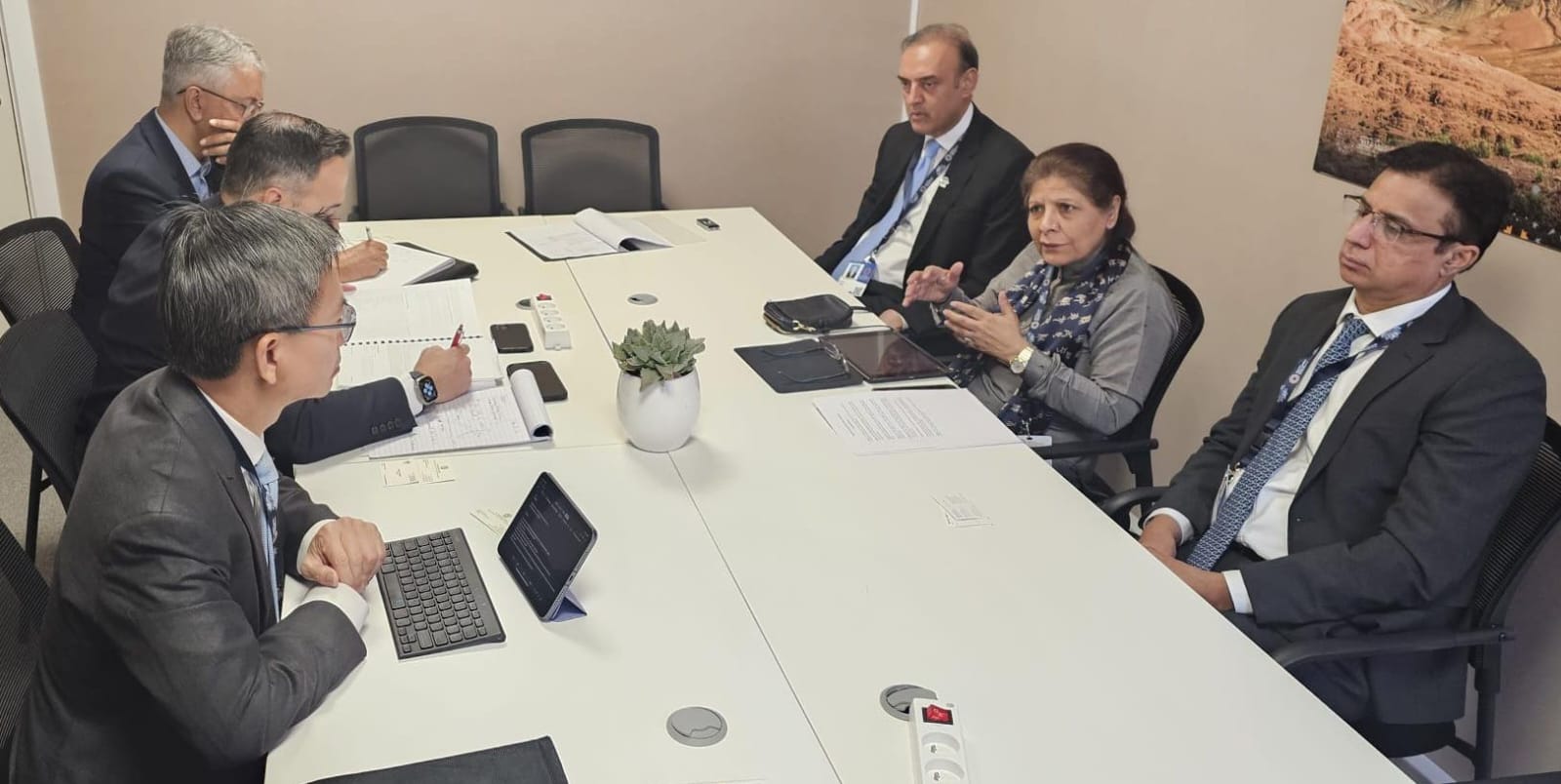Government reaffirms growth goals in S&P Ratings review

MG News | May 02, 2025 at 02:48 PM GMT+05:00
May 02, 2025 (MLN): The government reaffirmed its commitment to sustainable and inclusive economic growth by enhancing productivity and promoting exports during a Zoom meeting with representatives of Standard and Poor (S&P) Global Ratings.
This was presented by Federal Minister for Finance and Revenue, Senator Muhammad Aurangzeb, as part of the ongoing Pakistan Sovereign Ratings Review.
The Finance Minister presented a detailed overview of the government’s macroeconomic reform agenda and emphasized the continuity of reforms across key sectors including taxation, energy, state-owned enterprises (SOEs), privatization, public finance management, rightsizing of government functions, and more active debt management strategies.
He noted that inflation and the current account deficit (CAD) had remained a good story throughout the year, contributing positively to overall economic stability, as per the press release issued today.
He highlighted the achievement of surpluses in both the primary balance and the current account as major milestones, reflecting the improving fundamentals of Pakistan’s economy.
The Minister stated that the external portfolio was well-managed, with foreign exchange reserves projected to reach $14 billion by the end of June, supported by institutional and trade inflows, strong remittances, and easing oil prices all contributing to reduced pressure on the external account.
He credited strict financial discipline and strong coordination between federal and provincial governments for enabling the achievement of a primary surplus.
He also pointed to key institutional reforms including the signing of a National Fiscal Pact, operationalization of the National Tax Council, and the imposition of agricultural income tax, illustrating a whole-of-government approach aimed at improving resource efficiency, broadening the tax base, and ensuring long-term inclusive growth.
The Minister noted that the tax-to-GDP ratio was expected to reach 10.6% by the end of June, progressing toward the government’s target of 13% by the end of the 37-month Extended Fund Facility (EFF) with the International Monetary Fund (IMF).
He added that the separation of the Tax Policy Office from the Federal Board of Revenue (FBR) was part of aligning tax policy with economic value rather than administrative ease.
The Finance Minister also shared insights from his recent visit to the United States for the World Bank/IMF Spring Meetings, where he held over 70 meetings in six days with stakeholders including DFIs, investment banks, multilateral and bilateral partners, rating agencies, think tanks, and media.
He conveyed that feedback from these engagements consistently reflected appreciation for the structural reforms and macroeconomic stability achieved by Pakistan over the past 14 months, along with a strong recommendation to stay the course, deepen reforms, and embed permanence in macroeconomic stability.
Copyright Mettis Link News
Related News
| Name | Price/Vol | %Chg/NChg |
|---|---|---|
| KSE100 | 134,299.77 290.06M |
0.39% 517.42 |
| ALLSHR | 84,018.16 764.12M |
0.48% 402.35 |
| KSE30 | 40,814.29 132.59M |
0.33% 132.52 |
| KMI30 | 192,589.16 116.24M |
0.49% 948.28 |
| KMIALLSHR | 56,072.25 387.69M |
0.32% 180.74 |
| BKTi | 36,971.75 19.46M |
-0.05% -16.94 |
| OGTi | 28,240.28 6.19M |
0.21% 58.78 |
| Symbol | Bid/Ask | High/Low |
|---|
| Name | Last | High/Low | Chg/%Chg |
|---|---|---|---|
| BITCOIN FUTURES | 118,140.00 | 119,450.00 115,635.00 |
4270.00 3.75% |
| BRENT CRUDE | 70.63 | 70.71 68.55 |
1.99 2.90% |
| RICHARDS BAY COAL MONTHLY | 97.50 | 0.00 0.00 |
1.10 1.14% |
| ROTTERDAM COAL MONTHLY | 108.75 | 108.75 108.75 |
0.40 0.37% |
| USD RBD PALM OLEIN | 998.50 | 998.50 998.50 |
0.00 0.00% |
| CRUDE OIL - WTI | 68.75 | 68.77 66.50 |
2.18 3.27% |
| SUGAR #11 WORLD | 16.56 | 16.60 16.20 |
0.30 1.85% |
Chart of the Day
Latest News
Top 5 things to watch in this week
Pakistan Stock Movers
| Name | Last | Chg/%Chg |
|---|
| Name | Last | Chg/%Chg |
|---|



